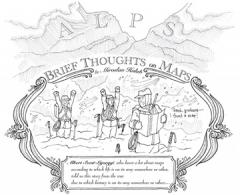
This Article From Issue
May-June 2013
Volume 101, Number 3
Page 166
DOI: 10.1511/2013.102.166
To the Editors:
The article “The Music of Math Games” by Keith Devlin (Macroscope, March–April) has lots of remarks about math/arithmetic education in general and about computer aids in particular that I found negative and off-putting. However, Devlin did not provide specific examples of mathematical thinking that would give the reader an idea of what he considers a successful math education game. He suggests the elimination of the “symbol barrier” without recognizing that algebra is all about symbols. Even the Arabic number system, on which all modern arithmetic is based, has a very large symbolic content.
Programs that attempt to improve math skills can be divided into two overarching categories: those that try to replace the teacher/lecturer, and those that replace the tedium of repetitive drills (practice). The primary example of the former is the Kahn Academy ( kahnacademy.org); among the many examples of the latter are the apps I have written for the Android smartphone (summarized on my website pgandkgsw.com). Kahn Academy has over a million downloads, and my apps have over 10,000.
Peter Gottlieb
Los Angeles, CA
Dr. Devlin responds:
My article describes five specific examples of games that encourage and require mathematical thinking, four of which have been available for some time.
As to the writer’s remark about algebra being “all about symbols,” algebra is no more about symbols than music is about musical notation. In both cases, the symbols are just ways to represent an activity on a static page. Algebra was developed in the 8th century and used successfully in trade, commerce, construction and engineering for 800 years before the symbolic version was introduced in the 16th century. Algebra is a way of thinking, one that has proved powerful. For more details, I refer the reader to a short article on my blog: http://profkeithdevlin.org/2011/11/20/what-is-algebra/.
As with music, symbols are a convenient way to represent algebra on a static page, but we should not confuse the medium with the message. Video games offer a way to represent many parts of mathematics dynamically, including algebra. That’s where the immense power of video games lies in mathematics education. Games that focus on symbolic drills miss this point.
Using the number of downloads of an app or game as a metric can be problematic, especially in education. Fast-food purveyors sell much more fare than healthy alternatives, but they don’t provide a good diet.

American Scientist Comments and Discussion
To discuss our articles or comment on them, please share them and tag American Scientist on social media platforms. Here are links to our profiles on Twitter, Facebook, and LinkedIn.
If we re-share your post, we will moderate comments/discussion following our comments policy.